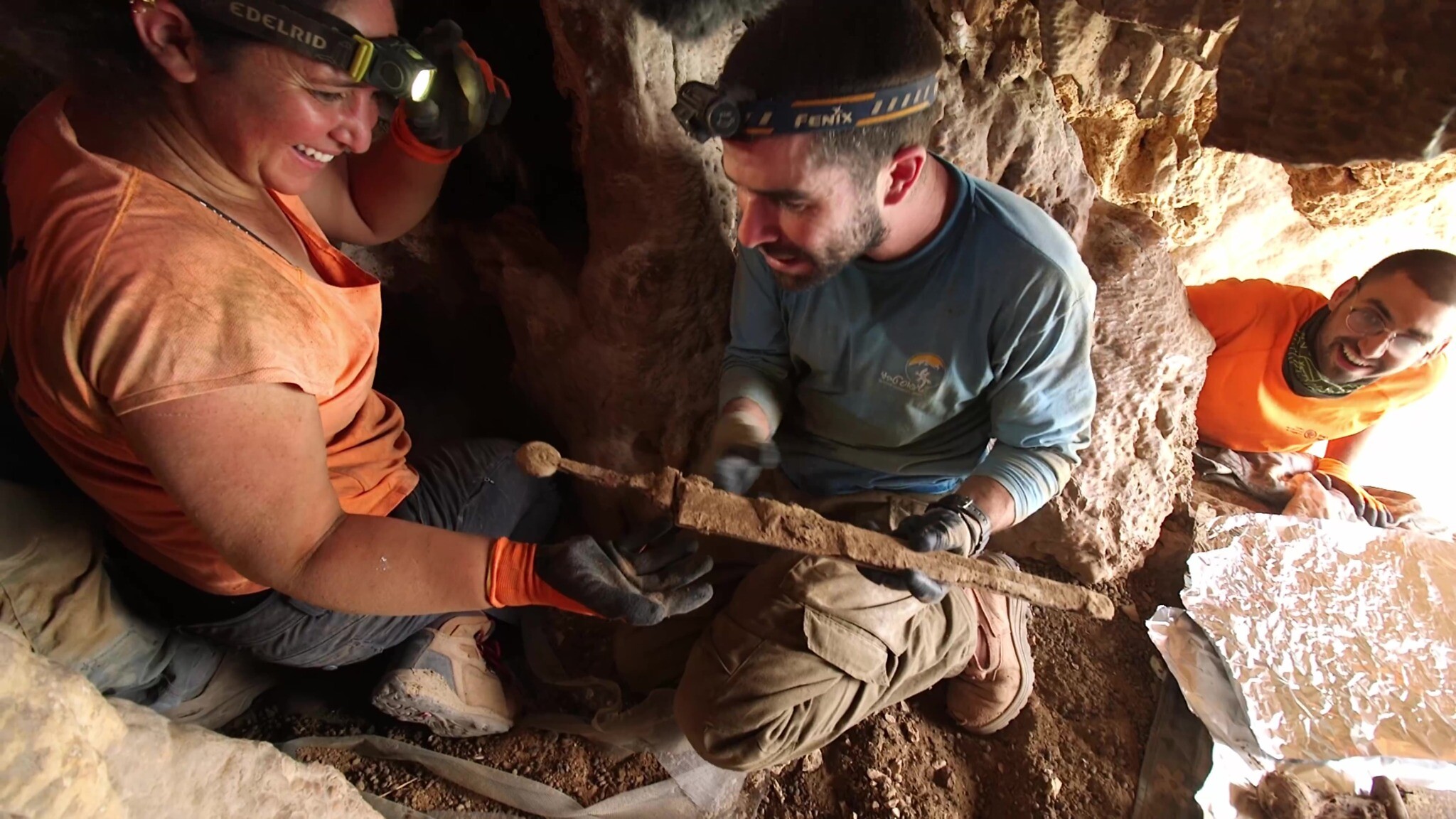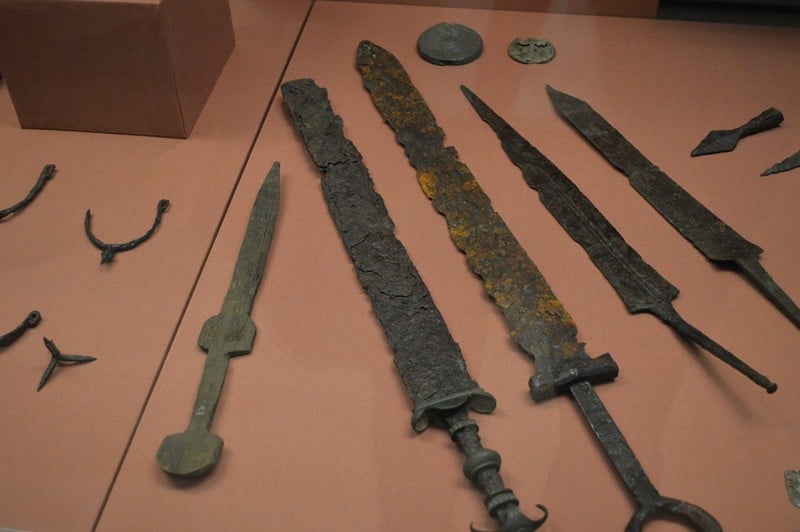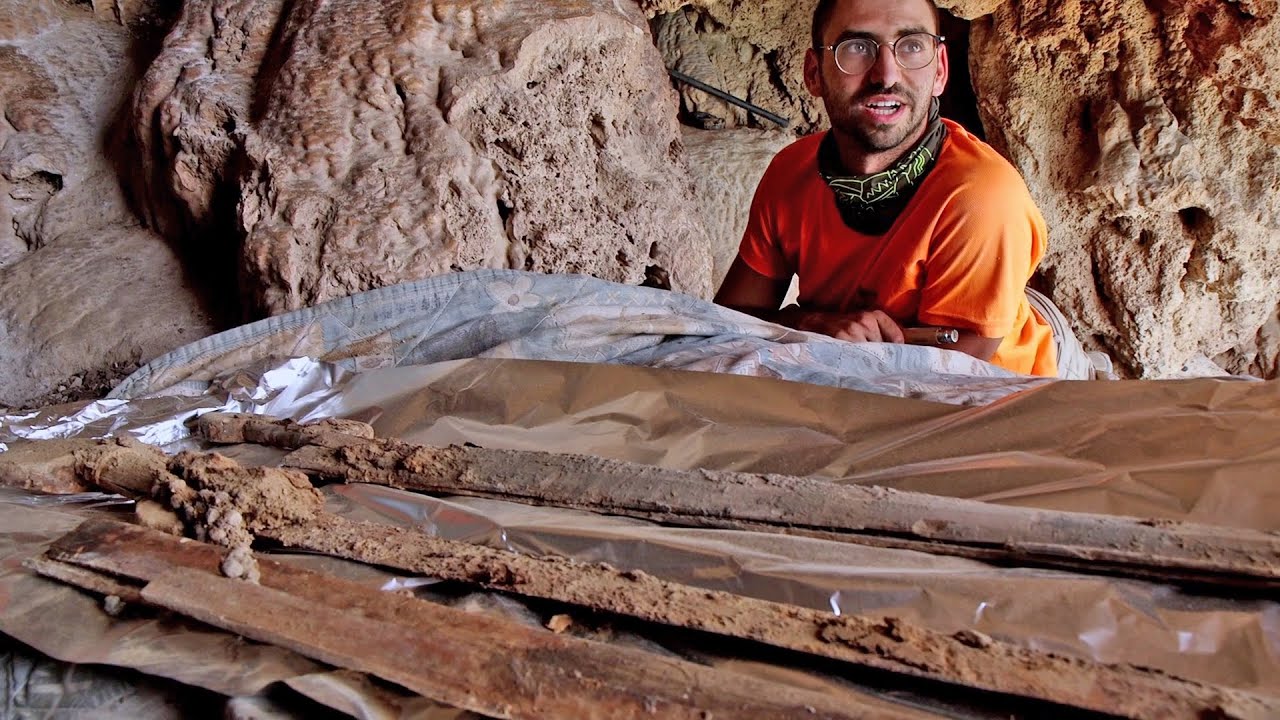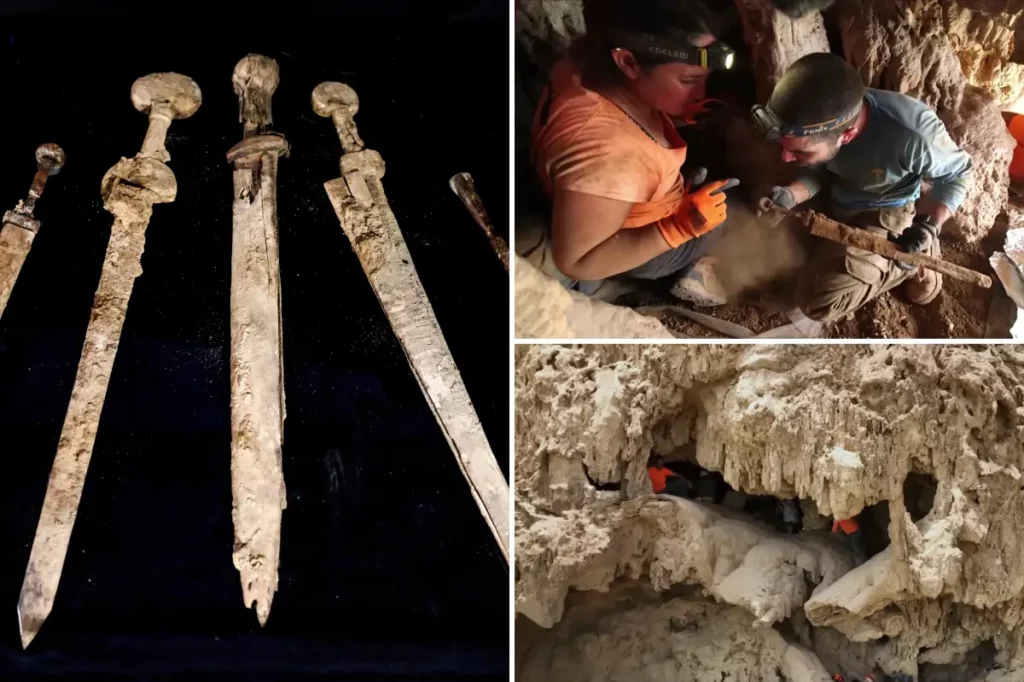In a remarkable archaeological discovery, four ancient Roman swords have been unearthed in a remote cave in the Judean Desert. These 1,900-year-old artifacts provide a fascinating glimpse into a pivotal moment in history, offering insights into the tumultuous Bar Kochba revolt against Roman rule. This discovery, hailed as “extremely rare” and “on an international level,” sheds new light on the final moments of the conflict between the Jewish rebels and the Roman army.
Archaeologists from the Israel Antiquities Authority’s Judean Desert Survey made this remarkable find in a cave near Ein Gedi National Park, close to the Dead Sea. The four swords, remarkably well-preserved, include three Roman spatha swords with blades measuring 60 to 65 centimeters in length, and a shorter ring-pommel sword with a 45-centimeter blade.
The Discovery Process

The discovery was made when geologist Boaz Langford and researcher Asaf Gayer, of Ariel University, were exploring the cave to photograph a previously discovered stalactite with an ancient Hebrew inscription. While inside, Gayer spotted an exceptionally well-preserved Roman pilum (shafted weapon) in a deep crevice, as well as fragments of carved wood that turned out to be parts of the swords’ scabbards.
The researchers immediately reported the discovery to the Israel Antiquities Authority, who then returned to the site with the Judean Desert Archaeological Survey Team. It was during this expedition that the four swords were found, three of them still sheathed in their scabbards. The arid climate of the Judean Desert proved instrumental in the exceptional preservation of these fragile artifacts, including the leather and wood components.
Insights into the Bar Kochba Revolt

Experts believe these swords belonged to Roman soldiers and were captured by Judean rebels during the Bar Kochba revolt, a Jewish uprising against Roman rule in Judea from 132 to 135 CE. The swords were likely hidden in the cave’s crevices for later use or to avoid being discovered by the Romans, as it was dangerous for Jews to be found in possession of Roman weapons during the rebellion.
“This is a very rare and unique find on an international level that will shed light on the last moments of the war between the Jewish rebels and the Roman army at the time of the Bar Kochba revolt,” said Dr. Eitan Klein, one of the directors of the Israel Antiquities Authority’s Judean Desert Survey.
The discovery of a Bar Kochba bronze coin at the entrance of the cave helps to pinpoint the period when the swords were hidden, providing valuable chronological context for the artifacts.
A Window into the Past

The exceptional preservation of these swords, with their blades, handles, and scabbards still intact, offers a remarkable window into the past. As Boaz Langford remarked, “You just realize that you are touching history, because here you are touching a find whose story you know.”
The Judean Desert, with its arid climate, has proven to be a “unique time capsule” where fragile artifacts that would not survive in other parts of the country can be preserved. This discovery of Roman swords, along with previously found Dead Sea Scrolls and other artifacts, demonstrates the rich archaeological potential of this region and its importance in understanding the tumultuous events of the past.
Conclusion

The discovery of these four 1,900-year-old Roman swords in the Judean Desert is an extraordinary archaeological find that sheds new light on the final moments of the Bar Kochba revolt against Roman rule. The exceptional preservation of these artifacts, including their blades, handles, and scabbards, offers a tangible connection to the past and a unique opportunity to better understand the events that unfolded during this pivotal period in history. As the Judean Desert continues to reveal its secrets, this discovery stands as a testament to the enduring significance of archaeological exploration and the valuable insights it can provide into the human experience across the ages.
